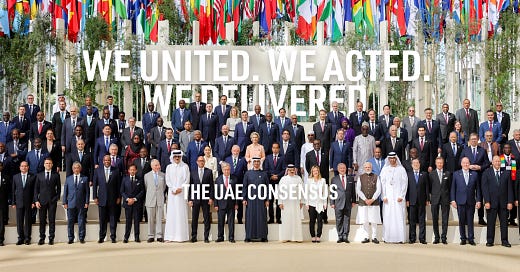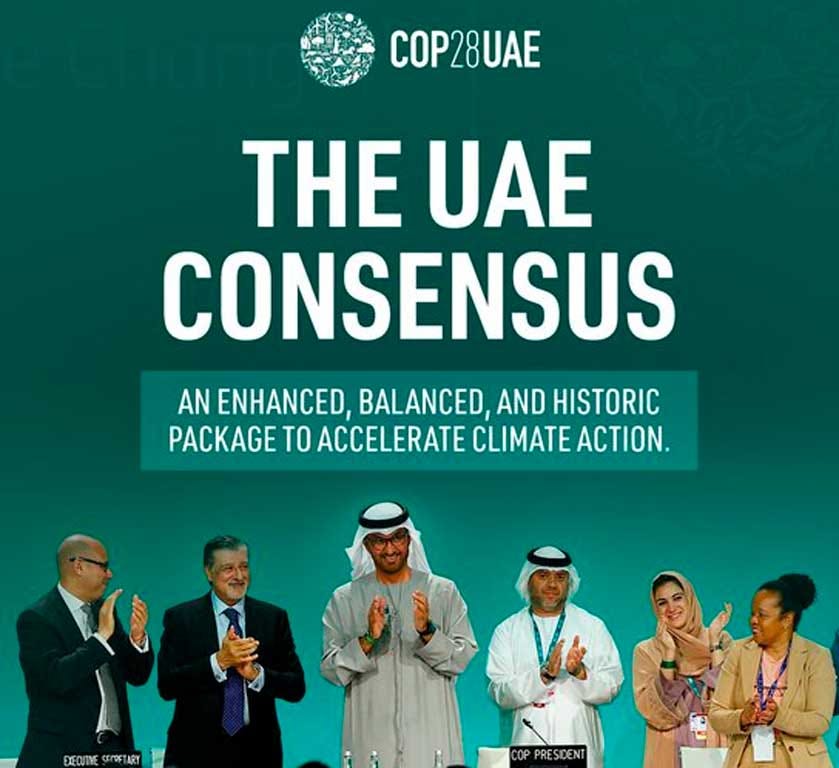The COP28 Presidency of the United Arab Emirates has achieved what may prove to be a decisive turn in the struggle of humanity against environmental damage caused by human forms of production and consumption. The UAE Presidency has attained a consensus agreement that, in the first place, begins implementation of Global South demands for financing the costs of adaptation to environmental damage in the developing countries, which are the most affected but least capable of adapting to climate changes caused by the patterns of production and consumption of the Global North. Secondly, the Agreement accelerates goals with respect to climate change, on the basis of recognition that the Parties to the Convention on Climate Change have not fulfilled their commitments.
The Consensus Agreement was a consequence of a year of diplomatic engagements and two weeks of intense negotiations at the 28th Conference of the Parties of the UN Co…



